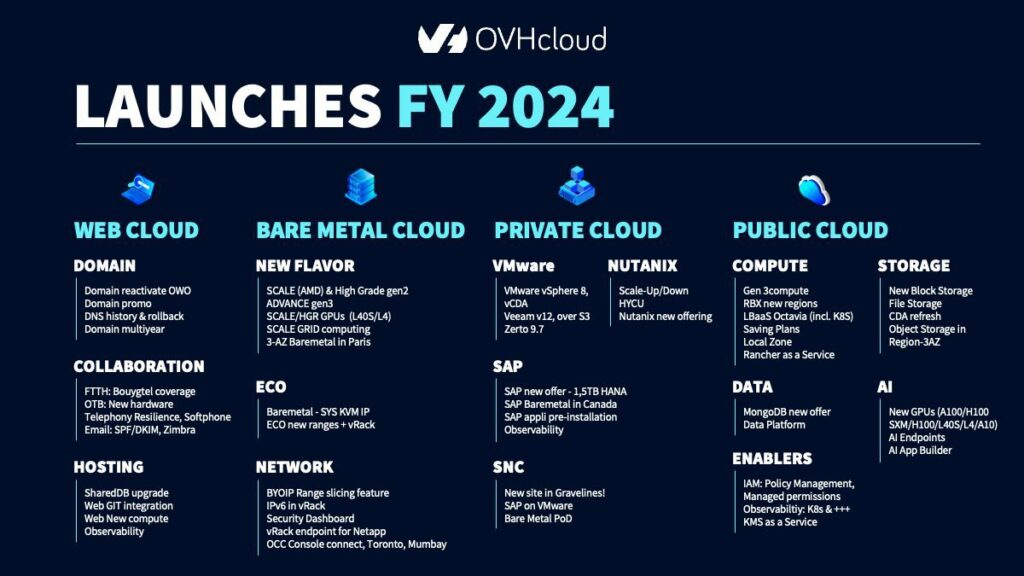VMware by Broadcom: New Offerings and Opportunities
Since Broadcom announced its plans to acquire VMware, OVHcloud has been proactive in preparing for potential changes to minimise any impacts on pricing. For the past two years, our customers haven’t seen any price changes linked to VMware licensing. We have been actively developing new offerings in preparation for potential changes to licence pricing. The migration […]
VMware by Broadcom: New Offerings and Opportunities Read More »









